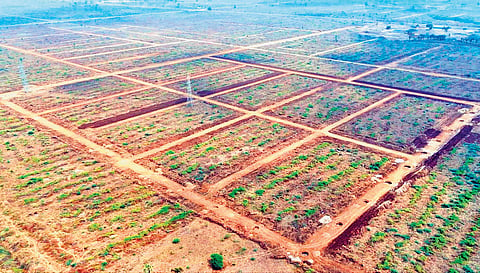CRDA showcases progress of LPS ahead of PM Modi’s visit
VIJAYAWADA: Ahead of Prime Minister Narendra Modi’s visit to Amaravati on May 2, the Andhra Pradesh government is stepping up its efforts to highlight the transformative success of the Land Pooling Scheme (LPS), a pioneering initiative that has turned several farmers into stakeholders in the development of the capital city Amaravati.
The Capital Region Development Authority (APCRDA) has fast-tracked infrastructure work in Amaravati, with a focus on the Land Pooling Scheme, which allowed over 29,000 farmers to voluntarily contribute more than 34,000 acres of land.
This initiative made Amaravati the first capital in India built through a participatory model, with farmers reaping benefits as partners in development.
“The farmers had faith in the future when they gave up their land for Amaravati. Today, they are proud to witness the transformation of their land into a world-class capital,” a senior CRDA official stated.
Launched on January 1, 2015, the Land Pooling Scheme was preceded by months of consultations beginning in September 2014. CRDA officials engaged in hundreds of meetings with villagers, incorporating public feedback to refine the acquisition strategy, increase compensation, and offer additional benefits.
As a result, more than 65,000 returnable plots have been allocated to land-contributing farmers through a transparent e-lottery system.
These plots will be part of a meticulously planned layout, with full development expected by 2029.
To expedite registrations, CRDA has opened 11 unit offices and nine plot registration centres across Amaravati.
Efforts are being made to ensure the timely handover of returnable plots. Farmers who gave up their land have been receiving annual rent payments since May 2015.
In August 2024, the CRDA Authority extended these payments for another five years.
Moreover, over 17,000 landless families in the capital region now receive a monthly pension of Rs 5,000.
The State government is also providing free skill development training to farmers’ children, many of whom have found employment or started their own businesses, further fostering economic growth and entrepreneurship in the region.

